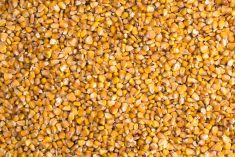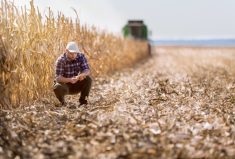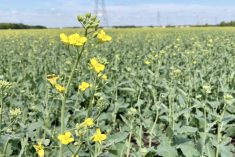A storm system that brought heavy rains, strong winds and hail to the Southwestern region of Manitoba caused some damage to crops during the week ended July 15, a report from Manitoba Agriculture, Food and Rural Initiatives said.
According to the report, the storm affected field and forage crops, as well as shelterbelts and farm infrastructure. The amount of damage ranged from light to severe, and assessments are ongoing.
Weather conditions were mostly beneficial for the development of crops in other regions of the province. The good growing conditions also aided farmers’ progress in applying fungicides as well as haying operations.
Read Also

Dryness poised to threaten Saskatchewan crops
Crops in Saskatchewan are developing in opposite directions, the province’s latest crop report said. Growing conditions in the province vary, with some areas receiving enough rain while other locations are experiencing crop stress due to hot, dry conditions.
According to the Manitoba crop production report, canola crop stages ranged from bolting to 90% flowering. Farmers were said to be applying fungicide to crops in the 20% to 50% flowering stage.
Canola plants in the province were impacted by blackleg, diamondback month larvae, lygus bugs and cabbage root maggots during the week.
Spring cereals progressed rapidly during the week, with development ranging from early flag leaf to done flowering. Farmers were also spraying fungicide to prevent flag leaf and fusarium head blight disease.
Some lodging was also reported in spring cereal crops across the province. The report noted the effects of lodging on yield losses depend on the growth stage of the plant, the severity of lodging and the weather conditions following the event.
Other crops were also said to be developing well, including soybeans – which were all in the flowering stage, grain corn, flax and winter cereals.














